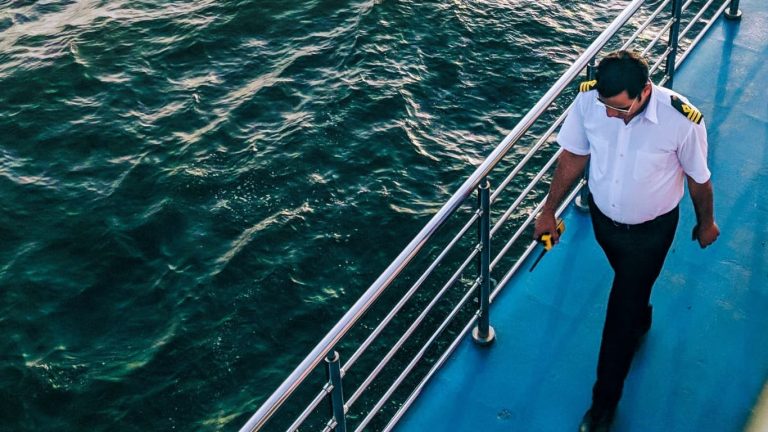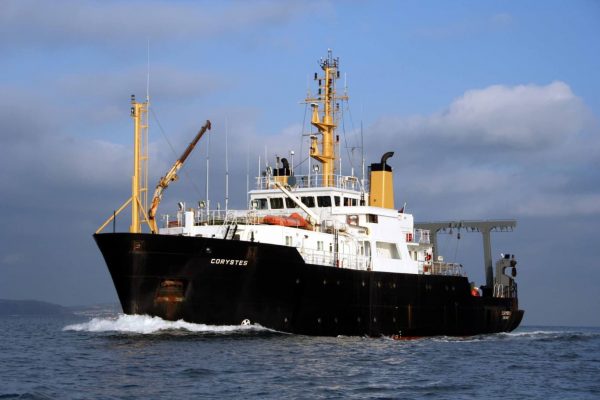What is an Officer of the Watch?
An Officer of the Watch (OOW) is a licensed deck officer on a merchant ship who is in charge of the deck operations, navigation and the ship’s safety during their watch. They are responsible for ensuring the vessel operates by regulations and company procedures, maintaining the ship’s equipment and machinery, and ensuring the crew carries out their duties effectively.
In a typical watchkeeping system, two or three officers take turns on duty for a specified period of time, usually 4 hours at a time. The Officer of the Watch (OOW) is in charge of the ship during their watch and is responsible for the safe navigation of the ship and the well-being of the crew and passengers.
The OOW must have a deep understanding of the ship’s navigational equipment, safety procedures, and regulations and the ability to make quick and accurate decisions in challenging situations.
Certificate of Competency
The OOW licence is sometimes referred to as a Deck Officer’s Certificate of Competency (CoC), Watchkeeping Certificate or Navigational Watch Rating Certificate.
Regardless of the name, the license certifies that an individual has the necessary knowledge, skills, and experience to serve as an Officer of the Watch on a merchant ship. The specific requirements and process for obtaining the license can vary depending on the country and the type of license sought.
Who Can Be Officer of The Watch?
Typically, an Officer of the Watch (OOW) role can be taken on by a licensed deck officer on a merchant ship. This can include the following types of officers:
Third Officer
A Third Officer is a junior deck officer responsible for the ship’s navigation and safety during their watch. They may be in charge of the deck operations during their watch and report to the Second Officer or the Chief Officer.
Second Officer
A Second Officer is a senior deck officer responsible for the ship’s navigation and safety during their watch. They may be in charge of the deck operations during their watch and report to the Chief Officer.
Chief Officer
The Chief Officer is the most senior deck officer on a merchant ship and is responsible for the overall operation of the deck department. They may also be required to take on the role of the Officer of the Watch during their watch and oversee the work of the other deck officers.
In some cases, other licensed deck officers, such as a Junior Officer or a Deck Cadet, may also take on the role of the Officer of the Watch under the supervision of a more senior deck officer. The specific roles and responsibilities of Officers of the Watch can vary depending on the ship type, the crew size, and the shipping company’s policies and procedures.
Officer of The Watch Salary
Whether an Officer of the Watch (OOW) is paid more than other deck officers on a merchant ship depends on various factors, including the shipping company, the ship’s type, the crew’s size, and the individual’s experience and qualifications.
Senior deck officers, such as the Chief Officer, are generally paid more than junior deck officers, such as Third and Second Officers. However, the specific salary for an OOW can vary widely depending on the individual’s experience, qualifications, and the shipping company’s policies and procedures.
In addition to base salary, deck officers may also receive benefits such as housing allowances, medical insurance, and other perks, which can enhance their overall compensation package.
The maritime industry has a strong tradition of rewarding experience and seniority. Hence, as officers gain experience and advance in their careers, they can typically expect to earn a higher salary. However, the specific terms of an OOW’s compensation package can vary widely and should be discussed directly with the shipping company.
In general, deck officers with an OOW license can expect to earn a higher salary than those without a license. They may also be eligible for promotions to higher-ranking positions, such as Chief Officer or Master Mariner.
How to Get an Officer of the Watch Certificate
Getting an Officer of the Watch (OOW) license typically involves a combination of academic study and practical experience. Here are the general steps you can follow to obtain an OOW license:
Meet the eligibility requirements: The eligibility requirements for an OOW license can vary depending on the country but typically include a minimum age, minimum education level, and a certain amount of sea-going experience. You should research the requirements for your specific country and ensure that you meet them before proceeding.
Enrol in a maritime academy or college: To prepare for the OOW license, you should enrol in a maritime academy or college that offers a program for deck officers. This will allow you to study the theory of navigation, ship handling, safety procedures, and other relevant topics.
Gain sea-going experience: In addition to academic study, you will need to gain sea-going experience to qualify for an OOW license. This can typically be done as a cadet or junior officer on a merchant ship or through a maritime training program.
Pass written and practical assessments: Once you have completed your academic studies and gained the necessary sea-going experience, you will typically be required to take written and practical assessments to obtain your OOW license. The specific assessments can vary depending on the country and the sought license type.
Apply for the license: Once you have passed the assessments, you can apply for your OOW license. The application process can vary depending on the country and the licensing authority, but typically involves submitting proof of your academic studies and sea-going experience, as well as passing a background check and medical examination.
The process of obtaining an OOW license can be challenging and time-consuming. Still, it can be a rewarding and fulfilling career path for individuals with a passion for the sea and a strong commitment to safety and navigation.
Cadetships and Officer of The Watch Licence
It is common for cadetships in the merchant navy to work towards obtaining an Officer of the Watch (OOW) license as part of their training and career development when joining the merchant navy.
Conclusion
The Officer of the Watch (OOW) license is a certificate that certifies an individual’s competence to serve as an Officer of the Watch on a merchant navy ship. The license is typically issued by a maritime administration or recognised maritime authority, and it demonstrates the individual’s knowledge, skills, and experience in the maritime industry. Obtaining an OOW license can positively impact salary, as it demonstrates a higher level of competence and experience, and individuals with an OOW license can expect to earn a higher salary than those without the license.
The process of obtaining an OOW license involves a combination of academic study and practical experience, and it typically requires the individual to pass written and practical assessments. The requirements for obtaining an OOW license can vary depending on the country and the maritime administration responsible for issuing the license.
In addition to the Officer of the Watch license, the certificate is also known by other names, including Deck Officer’s Certificate of Competency, Watchkeeping Certificate, and Navigational Watch Rating Certificate. Regardless of the name, the license certifies that an individual has the necessary knowledge, skills, and experience to serve as an Officer of the Watch on a merchant ship.




